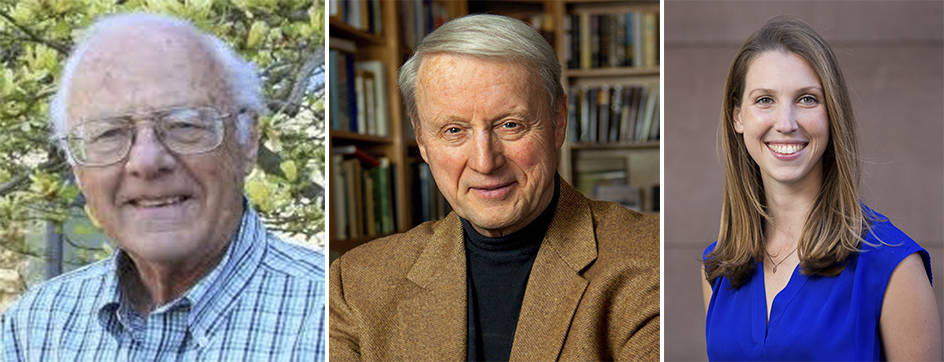Every day, the future of journalism is threatened by accusations of fake news and utilizing sensationalism to get attention.
Veteran journalist Hedrick Smith and Sarah Stillman, a staff writer for “The New Yorker,” will hold a discussion on the future of journalism in America at the Orcas Center on Friday, July 28 at 7 p.m.
“I don’t think we’ve ever seen anything like this before in the kind of mass attack on our journalism and through journalism on our democracy,” said Smith. “It’s essential for democracy. If you don’t know the real score on whether or not programs are working or who is funding campaigns or whether or not the president or any member of congress is telling you the truth or not, you don’t have any way of making a sensible judgment as a citizen.”
The panel, moderated by professor Floyd McKay, is sponsored by Orcas Currents and cosponsored by Janet Alderton, Joe Cohen and Martha Farish, and Frank Greer and Stephanie Solien. Smith and Stillman will discuss the influx in fake news and the witch hunt against media sources that are dispensing legitimate journalism. They will delve into “the promulgation of ‘alternative facts’ via the Internet and social media, fanned by a new president with over 32 million Twitter followers” as well as the “seemingly unbridgeable partisan chasm” that has opened between Democrats and Republicans.
This past November at Orcas Center, Smith – a Pulitzer Prize and Emmy Award-winning author and producer as well as part-time Orcas resident – spoke to an audience of more than 370 people about the political “earthquake” that was the 2016 election.
“I think you’re going to see journalism driving the same way it is right now: working ever harder to get at the facts and do a better job at investigating,” said Smith. “I think it’s actually helped revive some publications … what’s happening is more and more people who read, listen to or watch news attach greater value to the news today than they did a year ago. They realize the news is valuable; they realize the news is their food. It’s the nourishment that feeds the democracy.”
Smith served as Moscow bureau chief for “The New York Times” from 1971 to 1974 and as its Washington bureau chief and chief correspondent from 1976 to 1982.
Stillman is a MacArthur Fellow who has been at “The New Yorker” since 2013. She writes long-form articles about social injustice. She also directs the Global Migration Program at the Columbia School of Journalism and teaches literary nonfiction writing at Yale. She has received numerous awards and prizes for her work, including a National Magazine Award.
McKay worked for three decades as a reporter in Oregon, was a professor of journalism at Western Washington University from 1990 to 2004, was a Nieman Fellow at Harvard University and received the Dupont-Columbia Broadcast Award.
“What the president is calling fake news is news he doesn’t like,” said Smith. “But that’s not fake news. It isn’t fabricated, it’s an effort to get at the fact.”



